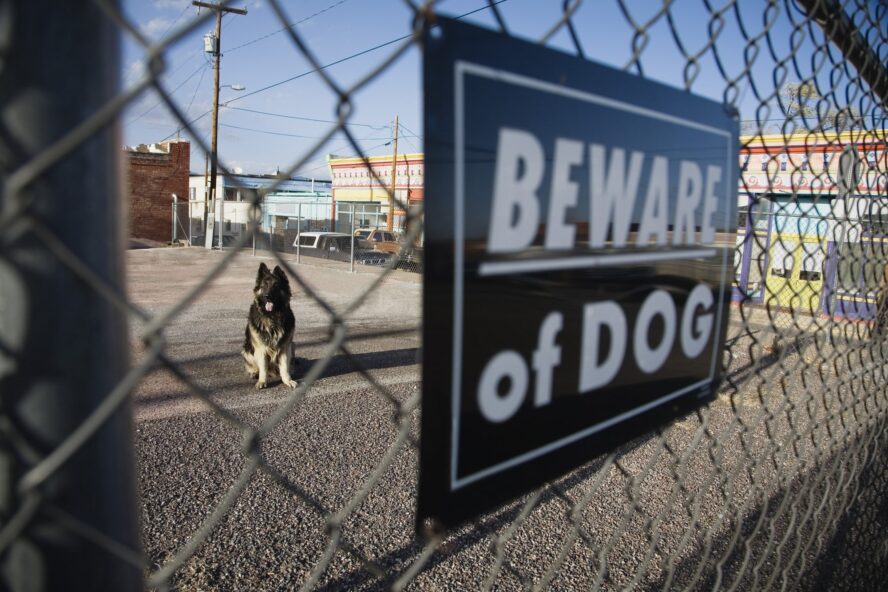Dog Bite Lawyer
Sometimes our precious pets can be a source of liability, even when we take precautions. As a dog owner or a dog keeper, you should know what your obligations are, what the law states, and how to defend yourself. If you are bitten by a dog or suffer damages from the conduct of a dog (e.g. knocked over), you should know how the law helps you and what your obligations are in this situation. Our friends at Kelliher & Beyer, LLP discuss the law around dog bite cases below.
A dog bite statute provides that, “[i]f any dog shall do any damage to either the body or property of any person, the owner or keeper, or if the owner or keeper be a minor, the parent or guardian of such minor, shall be liable for such damage, unless such damage shall have been occasioned to the body or property of a person who, at the time such damage was sustained, was committing a trespass or other tort, or was teasing, tormenting or abusing such dog. If a minor, on whose behalf an action under this section is brought, is under seven years of age at the time the damage was done, it shall be presumed that such minor was not committing a trespass or other tort, or teasing, tormenting or abusing such dog, and the burden of proof thereof shall be upon the defendant (dog owner) in such action.”
M.G.L. ch. 140 § 155.
So what does this mean? Simply put, it means that if your dog bites someone or causes damages to another, you are liable unless the victim was trespassing, committing a tort (civil wrongdoing), or teasing, tormenting, or abusing the dog. This is what is known as strict liability. Strict liability is a presumption of liability. It does not matter if you took precautions to secure your dog, or that the dog had never before shown violent propensities. The wrongdoing was the act of the dog biting a person or damaging a person’s property. The plaintiff only has to prove that the dog caused the damages and that the plaintiff was not injured as a result of his own trespass, tort, or provocation of the dog.
There are ways to shield yourself from liability for damages. First, your homeowner’s or renter’s insurance policy likely has a clause that addresses these situations. You should check your policy or call your insurance company to make sure that your policy covers dog bite damages. Second, keep your dog secured in your yard or on a leash when you are out walking it. Third, do not leave others, especially children, alone with your dog. Dog training can be helpful, as it can help dogs understand how to react to situations where they feel anxiety, fear, or discomfort.
If you find yourself a victim of a dog bite or if you have been sued because your dog bit another person or caused damage, you should seek the counsel of an experienced attorney. They will negotiate and advocate for you to get you what you are entitled to.


